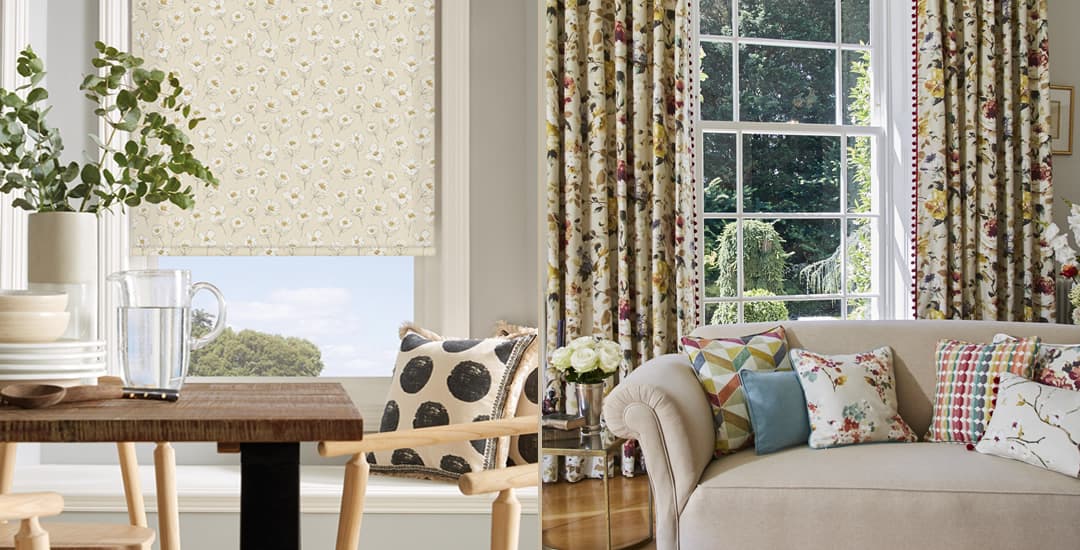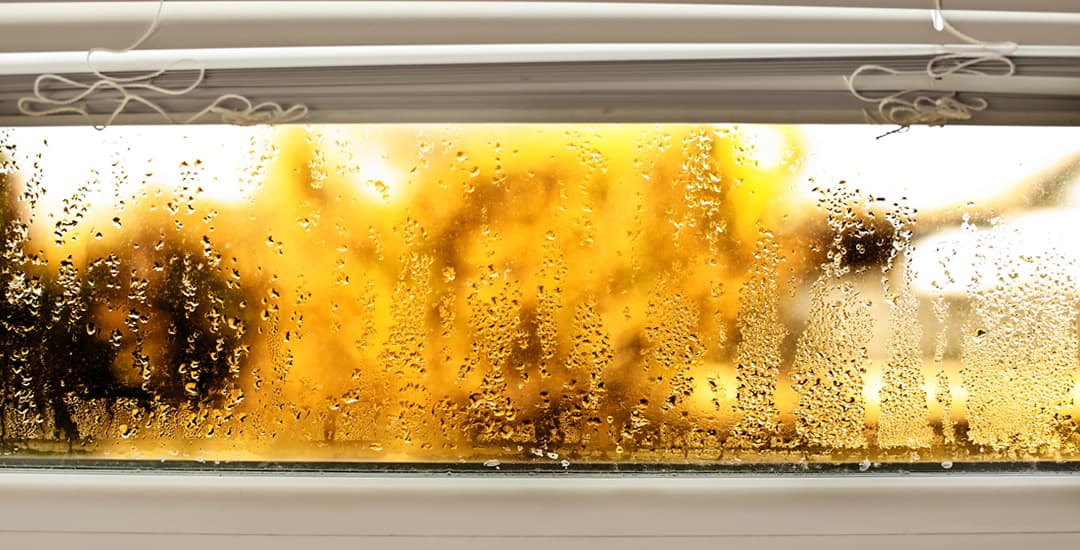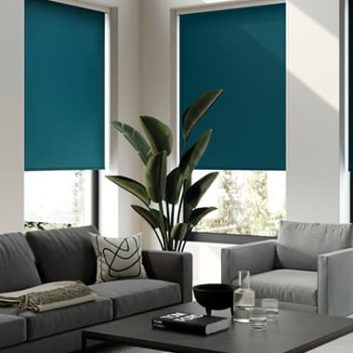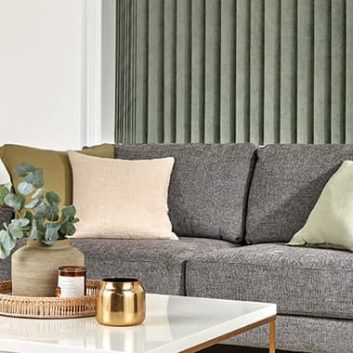
No, neither blinds nor curtains will prevent condensation from forming, and neither blinds nor curtains cause condensation to gather either. Some types of blinds will help to reduce condensation more than some types of curtains, but neither is by its nature more effective than the other.
Are blinds better than curtains for condensation reduction?
No, not necessarily; it depends on what blinds you’re comparing to what curtains.
In certain scenarios, both blinds and curtains can help to reduce the amount of condensation that gathers on your window, and the extent to which this applies can vary depending on the type of curtains and blinds you’re dealing with.
If you use thermally insulating blinds rather than regular blinds or everyday curtains, these provide a distinct added layer of insulation to your window, which not only helps to reduce heat loss via the window but also helps to make the temperature difference on the outside and the inside of the glass less acute.
This is because the void between the window and the blind forms a buffer of air where an exchange of heat takes place; this gradual change in temperature rather than a more acute one where hot air hits cold glass and cools atmospheric humidity into water on the pane can mean less condensation building up on the window overall.
It does not, however, reduce the level of atmospheric humidity present in the room nor increase its ventilation, which are the two key factors in the level of water vapour present in the air inside that is available to form condensation!
When it comes to curtains and condensation, curtains too can help to reduce the amount that collects on the window by means of trapping warm air between the window and the fabric and again, making the temperature difference on the two sides of the glass less extreme.
Thicker or better insulating curtains will be more effective at this than a regular single-layered or lightly lined pair. It would also be fair to say that if you do have a particularly thick, heavy pair of curtains that won’t be disturbed by airflow or a breeze, these will also be more effective at stopping drafts than blinds, albeit lighter-weight curtains will be less effective.
Are blinds better than curtains for condensation in practical terms?

If you do have a room or window that suffers badly with condensation, you might want to consider using thermally insulating blinds in this room and particularly, using waterproof ones. Condensation and a generally humid environment (such as you might get in a room that is heated by gas fire, that’s damp for whatever reason, poorly ventilated, or simply just the kitchen or bathroom due to steam and cooking vapours) will cause water to settle on your blind or curtains as well as your windows.
This means that non-waterproof materials will begin to suffer from contact with water after a while. Curtains (which aren’t waterproof at all) and non-waterproof blinds will eventually get damp, begin to smell damp, may grow mould or mildew, and may begin to stain, discolour, or suffer from material/fabric damage like warping due to the presence of damp or high levels of humidity too.
Waterproof blinds won’t absorb this water/humidity and so won’t fall foul of these problems, plus you can just wipe them off to dry or clean them as needed too.
Ultimately, choosing between curtains and blinds for condensation is more of a style choice than a practical one, as neither cause nor cure condensation; but for badly condensated rooms, waterproof blinds would be the better choice.




